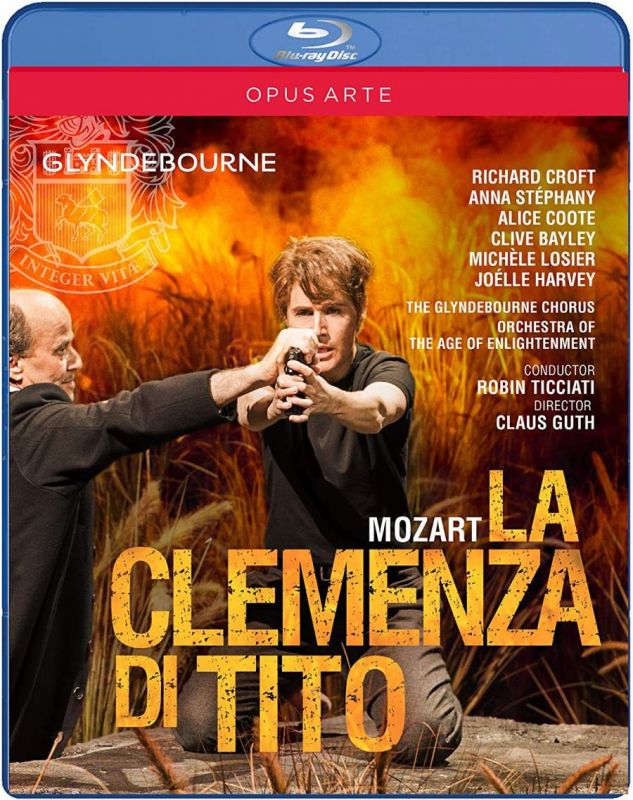MOZART La Clemenza di Tito (Ticciati)
View record and artist detailsRecord and Artist Details
Composer or Director: Wolfgang Amadeus Mozart
Genre:
Opera
Label: Opus Arte
Magazine Review Date: 09/2018
Media Format: Blu-ray
Media Runtime: 138
Mastering:
DDD
Catalogue Number: OABD7232D

Tracks:
| Composition | Artist Credit |
|---|---|
| (La) Clemenza di Tito |
Wolfgang Amadeus Mozart, Composer
Alice Coote, Vitellia, Mezzo soprano Anna Stéphany, Sesto, Mezzo soprano Clive Bayley, Publio, Bass Glyndebourne Festival Chorus Joélle Harvey, Servilia, Soprano Michèle Losier, Annio, Mezzo soprano Orchestra of the Age of Enlightenment Richard Croft, Tito, Tenor Robin Ticciati, Conductor Wolfgang Amadeus Mozart, Composer |
Author: David Vickers
Richard Croft’s mature acting and ardent singing vividly bring to life Tito’s torn emotions (he appears as a man so worn by the cares of duty that every nuance of ‘Del più sublime soglio’ is credible). The cruel manipulation by Alice Coote’s psychotic Vitellia of Anna Stéphany’s puppyish Sextus is painful to observe, yet their respective trajectories to nobly selfless lover and penitent heroine are etched to perfection. Joélle Harvey’s noble sweetness is the direct prompt of lucid reason and virtuous morality (‘S’altro che lagrime’) for Vitellia’s awakening conscience in ‘Non più di fiori’ (its basset-horn obbligato played impeccably by Katherine Spencer).
The message of the splendid finale is clumsily subverted: the implication is that all five main characters who exercise or benefit from clemency have been murdered on the orders of the usurper Publio – portrayed by Clive Bayley as a sinister mandarin-like public servant who detests Tito’s weakness. It transpires that the heroes are ghosts whose idealised virtues cannot prosper in the real world. Other than the enlightened spirit of Mozart’s drama being given an artificially bitter aftertaste, Guth’s production is rewarding and insightful. Robin Ticciati’s conducting is briskly rhythmical and episodic, and the OAE play with their customary reliability and quality.
Discover the world's largest classical music catalogue with Presto Music.

Gramophone Digital Club
- Digital Edition
- Digital Archive
- Reviews Database
- Full website access
From £8.75 / month
Subscribe
Gramophone Full Club
- Print Edition
- Digital Edition
- Digital Archive
- Reviews Database
- Full website access
From £11.00 / month
Subscribe
If you are a library, university or other organisation that would be interested in an institutional subscription to Gramophone please click here for further information.




